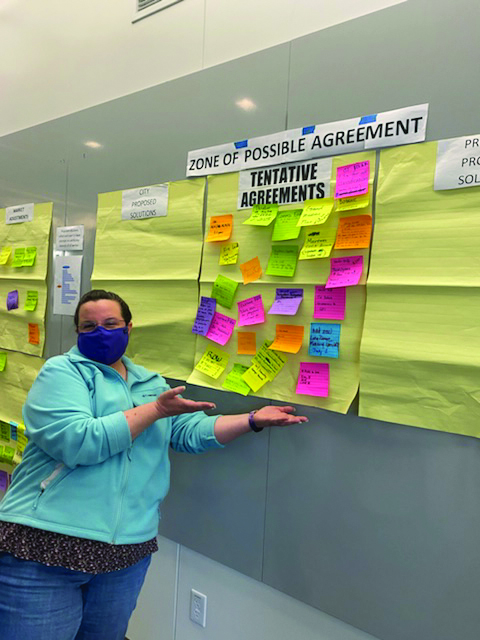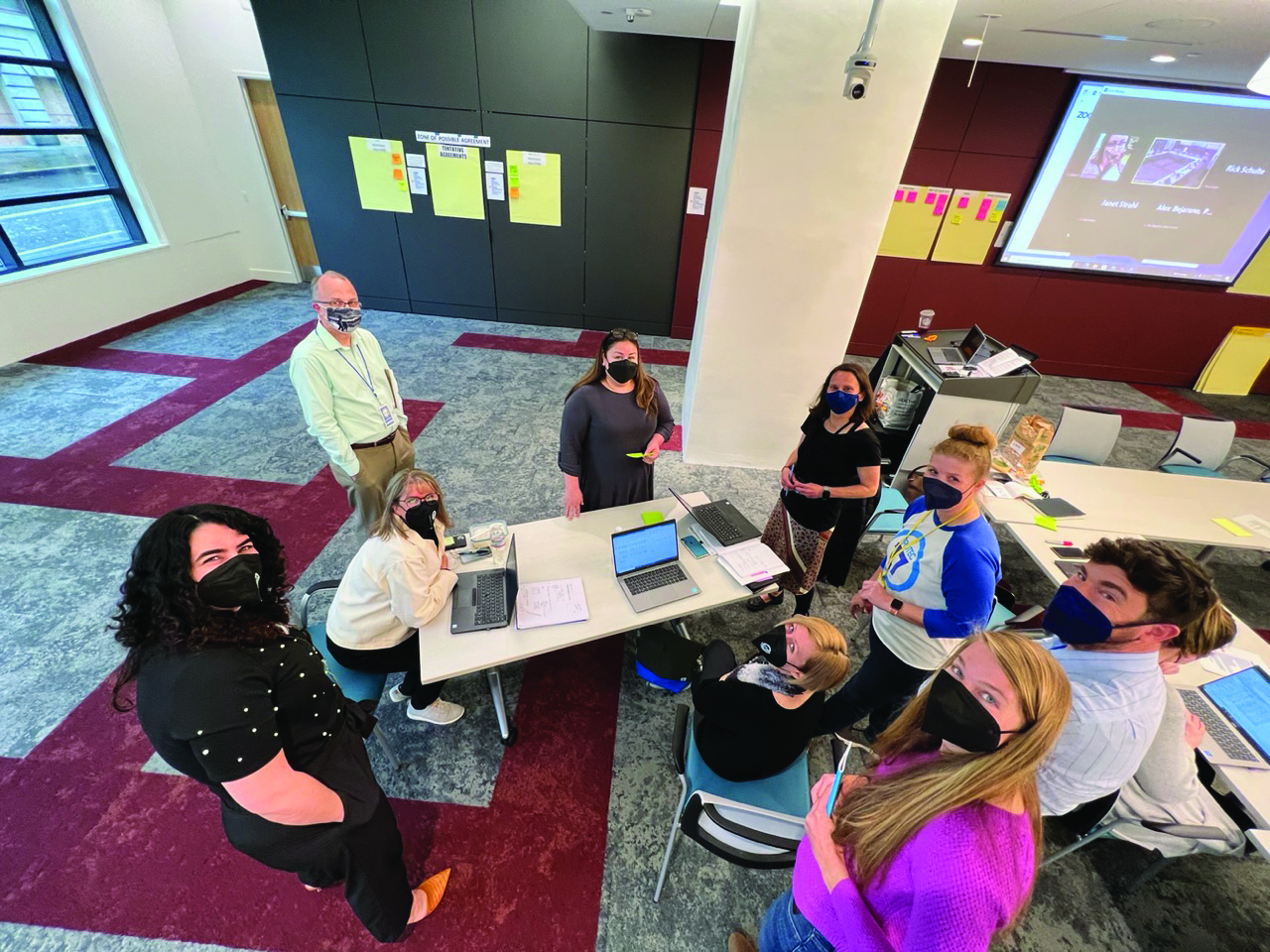As PROTEC17 members at the City of Portland prepared for negotiations of their 2022-2025 contract last year, they understood they’d be facing a very different set of challenges than previous bargaining cycles. A majority of members were still working remotely, negotiations with other City unions were not progressing, and members had a very different set of expectations and priorities given the immense changes to work and life that occured because of the pandemic. But through the nearly year-long process of interest-based bargaining, the negotiations team was able to secure big wins for Portland members.
Interest-Based Bargaining (IBB)
Back in 2020, when PROTEC17 demanded to bargain a change in the City’s merit pay practice, union member-leaders did not realize the impact it would have on bargaining the full contract a year later.
At the time, management was reluctant to change the merit pay system, as they saw it as a motivational tool. However, they agreed to approach the subject through Interest-Based Bargaining (IBB) with a trained facilitator from the Oregon Employment Relations Board (ERB).
The IBB process, which starts with eight hours of required training for all parties, is based on four principles: 1) Separate the people from the problem, 2) Focus on interests, 3) Create options to satisfy mutual interests, and 4) Evaluate options to develop consensus solutions. It relies on both employer and union jointly identifying and reviewing data for a given topic or issue. With the presence of a skilled neutral party (the ERB facilitator), both sides are challenged to remain focused on the shared interests and to find creative solutions that will meet those interests.
Using the IBB process helped the PROTEC17 team secure an early win that moved all represented classifications off of the biased merit system and onto the step system (see story in previous issue of Insight.) This success gave the team confidence in the IBB process.
Using data and persuasion
Each bargaining team member — Paul Cone, Rachel Burlington, Kevin Bond, Michael Goins, Andrew Neuman, Rebecca Sherman, Janet Strahl, Emily Tabachnick, and Emily Wilson — stepped up to lead a subcommittee on topics that were identified from comments and rankings in the pre-bargaining membership survey, which included: telework, professional development, contracting out, seniority, equity, attendance incentive/sick leave, workplace safety, and wages. In each area, subcommittee leaders crafted winning arguments and proposed creative solutions.
The bargaining team followed up with a contract victory that expands professional development opportunities and removes barriers to access professional development funds. They also secured language to help avoid and reduce impacts from future economic downturns.
Staying focused on the interests of PROTEC17 members and rooting arguments in the City of Portland’s adopted values — Anti-Racism | Equity | Transparency | Communication | Collaboration | Fiscal Responsibility — proved a winning combination. Time after time, discussing the data together and reflecting it back to the shared interests, forced the City to acknowledge where there was bias in their existing systems or where it was otherwise failing its workers.
However, in some cases, relying on data was not an option because the City simply wasn’t tracking the right metrics to address the issue or problem. For example, the City of Portland could not provide any comprehensive data on the number of contract employees, let alone the number doing PROTEC17 work.
But with a myriad of member stories documenting use of contractors, the bargaining team was still able to leverage the IBB process to gain traction in this area. The new contract adds guardrails to curb the use of contract employees and overhauls the system that requires the City to notify PROTEC17 when it plans to use contractors.
Affinity Bargaining for Economics
The IBB process can be utilized for a wide variety of topics, but it is not generally used for economic items like wage or cost-of-living adjustments. The ERB facilitator recommended trying Affinity Bargaining (AB) for economics. AB is a collaborative process that requires a great deal of upfront work to develop a shared data set that includes a total budget and costing model, but once the leg-work is done, it is possible to reach a Tentative Agreement (TA) in as little as one day.
The AB process lent more transparency to the bargaining process overall because PROTEC17 members could see how each proposal or adjustment affected the total economic picture. This put more power in the hands of the bargaining team to determine what to prioritize and how to ensure money wasn’t left on the table.
Ultimately, the team reached a TA on economics with the City within three days – record time! You can find the final TA on the PROTEC17 website at: protec17.org/member/portland.



